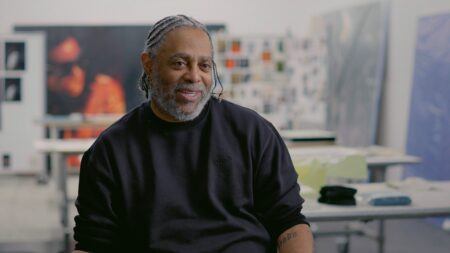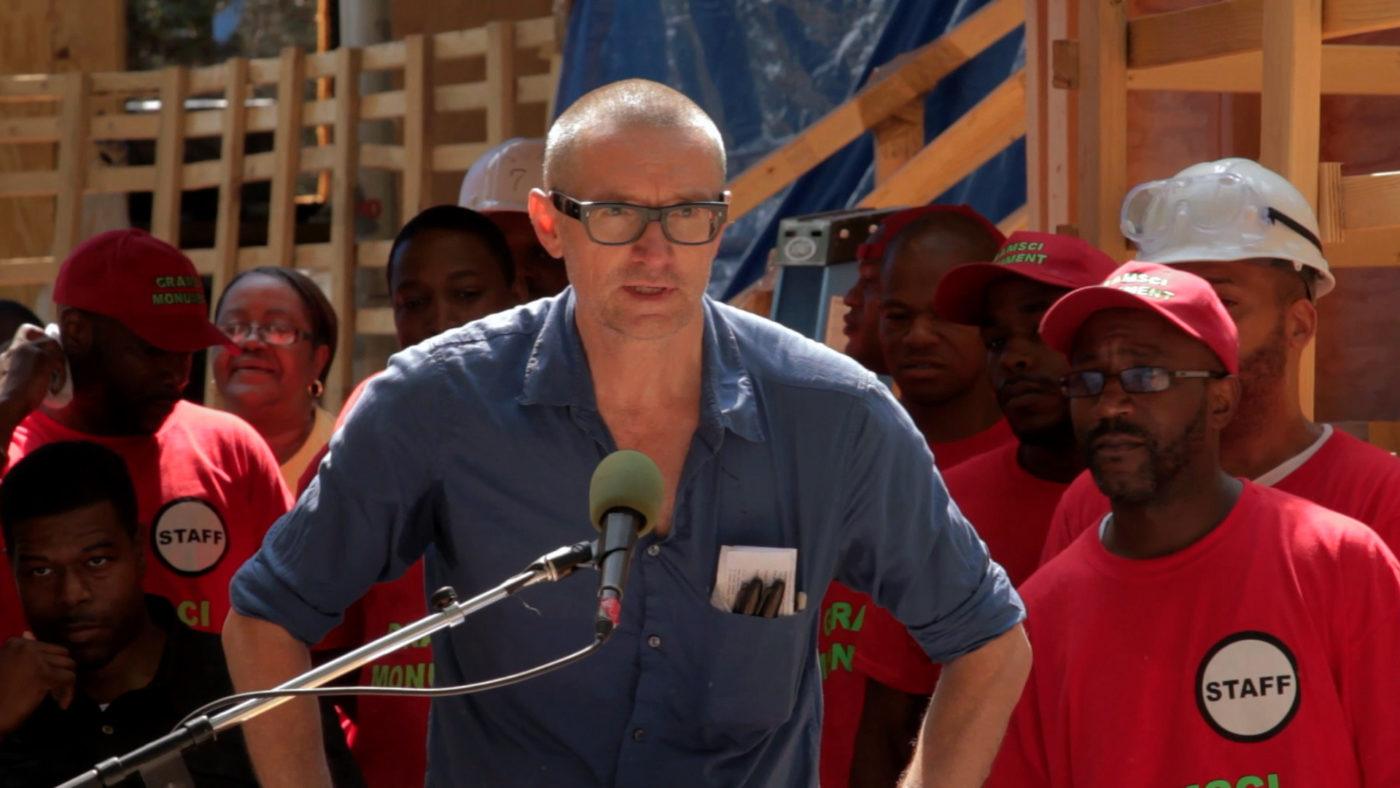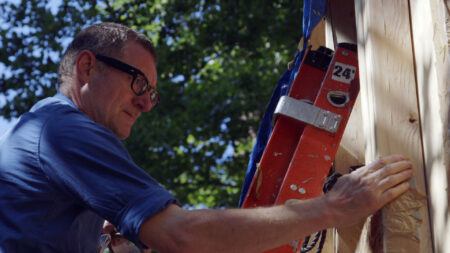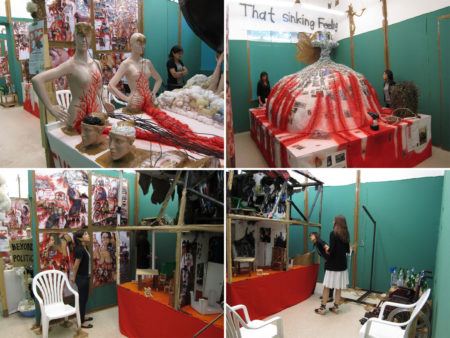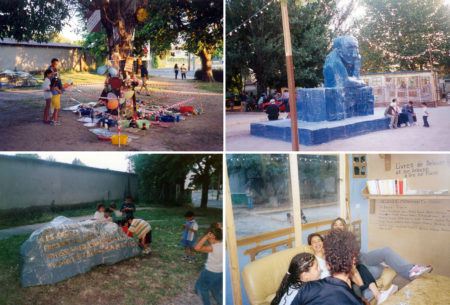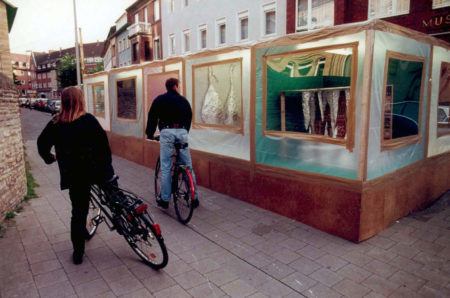Thomas Hirschhorn
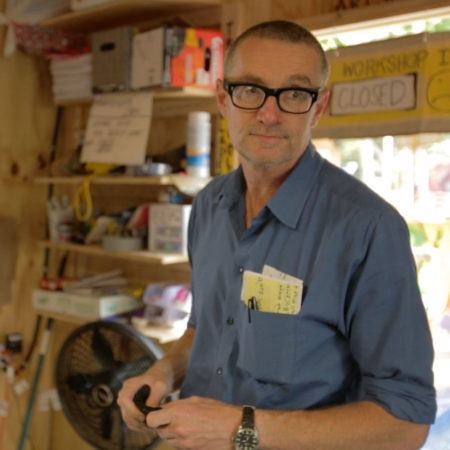
Thomas Hirschhorn was born in 1957 in Bern, Switzerland. Originally trained as a graphic designer, Thomas Hirschhorn shapes public discourse that relates to political discontent, and offers alternative models for thinking and being. Believing that every person has an innate understanding of art, Hirschhorn resists exclusionary and elitist aesthetic criteria—for example, quality—in favor of dynamic principles of energy and coexistence.
He creates sprawling installations from mundane materials (packing tape, cardboard, foil) that engage the senses. Using collage as a form of interpretation and critique, Hirschhorn presents intellectual history and philosophical theory much as he does everyday objects and images, and poses questions about aesthetic value, moral responsibility, political agency, consumerism, and media spectacle. He has produced a series of monuments to great philosophers—Spinoza, Bataille, Deleuze, Gramsci—that while physically ephemeral are intended to live on in the collective memory of those who have experienced them. In the process of creating such work, Hirschhorn has enlisted individuals living near the monument sites, paying them to assist him (though not to collaborate, per se, in the artwork). “To me,” he says, “it seems much more honest to say coexistence than collaboration.”
Thomas Hirschhorn attended the Schule für Gestaltung in Zürich, Switzerland. His many honors include the Kurt Schwitters Prize (2011); Dutch Association Internationale des Critiques d’Art Award (2007); Joseph Beuys Preis für Forschung (2004); and the Marcel Duchamp Prize (2000). Major exhibitions have appeared at Dia Art Foundation (2013); ICP Triennial (2013); Istanbul Biennial (2013); Musée du Quai Branly (2012); Palais de Tokyo Triennial (2012); Venice Biennale (2011, 1999); Power Plant (2011); Secession, Vienna (2008); Museo Tamayo (2008); Carnegie International (2008); Musee d’Art contemporain de Montreal (2007); São Paulo Bienal (2006); ICA Boston (2005); CCA Wattis Institute for Contemporary Arts (2005); Palais de Tokyo (2004); Documenta (2002); Centre Georges Pompidou (2001); Kunsthaus Zürich (2001); the Renaissance Society (2000); Art Institute of Chicago (2000); and the Biennale de Lyon (2000). Thomas Hirschhorn lives and works in Paris, France.
Videos 3
-
Thomas Hirschhorn
